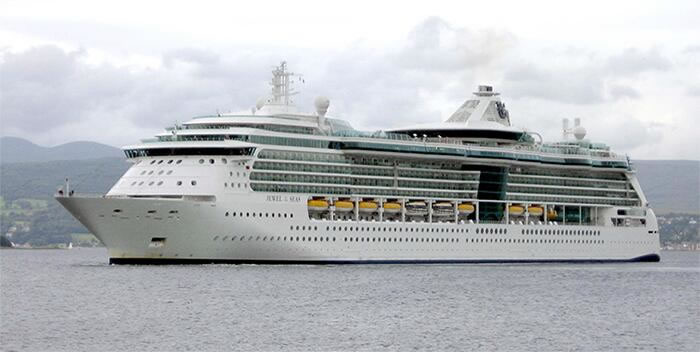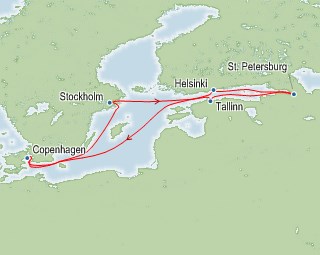14 ACPE Credits
Up to 7 MOC (Part II) points in the American Board of Pediatrics' (ABP) Maintenance of Certification (MOC) program
14.0 Contact Hours

You may have found this page in error or been referred to this page via an outdated link. If you did come to this page from a link posted on another website, you may wish to alert the person responsible for the link that the program is labeled as inactive on our site. You are also welcome to e-mail us and report this message.


Case Western Reserve University
Cleveland, Ohio
Faculty, Residency Training Program in Emergency Medicine
MetroHealth Medical Center/ Cleveland Clinic
Dr. Jonathan Glauser is currently Professor of Emergency Medicine at Case Western Reserve University. He is board certified in both Emergency Medicine and Pediatric Emergency Medicine.
He has been active in the education of medical students and resident training for over three decades, and is currently on the full-time faculty of the residency program in Emergency Medicine at MetroHealth Medical Center/ Cleveland Clinic.
He serves on the editorial advisory board of three publications in the field of emergency care, and is section editor in Infectious Disease for the journal Current Emergency and Hospital Medicine Reports. He lives with his wife in the greater Cleveland area.
Our staff can assist you with all your travel arrangements.
| DATE | PORT OF CALL | ARRIVE | DEPART |
|---|---|---|---|
| Sat Aug 08 | Copenhagen, Denmark |
- | 5:00 pm |
| Sun Aug 09 | *At Sea - Cruising |
- | - |
| Mon Aug 10 | Stockholm, Sweden |
9:00 am | 5:00 pm |
| Tue Aug 11 | Tallinn, Estonia |
9:30 am | 5:30 pm |
| Wed Aug 12 | St. Petersburg, Russia |
7:00 am | - |
| Thu Aug 13 | St. Petersburg, Russia |
- | 6:00 pm |
| Fri Aug 14 | Helsinki, Finland |
7:00 am | 3:00 pm |
| Sat Aug 15 | *At Sea - Cruising |
- | - |
| Sun Aug 16 | Copenhagen, Denmark |
7:00 am | - |

Copenhagen, Denmark - Denmark's capital is sophisticated, saucy and friendly. Stroll the fairytale world of Tivoli Gardens to take in bright lights, castles that out-Disney Disney. See the city's 200- year-old Royal Palace, the lively Old Harbor - Hans Christian Andersen lived here. Salute the Little Mermaid, symbol of this light-hearted city.
At Sea - Cruising - Cruising
Stockholm, Sweden - There’s just something about Stockholm, Sweden’s capital and beating heart. It’s an intellectual city like Berlin and brimming with cultural artifacts like Rome. On a Scandinavia cruise, Stockholm is a bit of a wildcard. It’s a leader in the design space that put Scandinavian minimalism on the map. The city is home to an array of museums, historic buildings, and genuinely delicious eats scattered across the 14 connected islands that comprise it. Stockholm is also a pioneer in the foodie scene, where expensive delicacies and down-to-earth street foods collide.
For a city that has been around since the 13th century, Stockholm balances hundreds of years of history with a sleek, modern energy. On your Stockholm cruise, don’t miss a walking tour through the cobblestoned streets of Gamla Stan, the Old Town. Spend an afternoon at the Nationalmuseum or the Vasa Museum, and you’ll leave with more knowledge about Vikings and Swedish art than you ever thought possible. Because Stockholm is a set of islands connected by bridges, there’s often a light breeze and plenty of opportunities for swimming, kayaking, and water sports during the summer months. Stockholm is the perfect introduction to the finer things in life in Scandinavia.
Tallinn, Estonia - Tallinn offers the perfect introduction to Estonia. After decades of occupation by the Soviet Union in the late 20th century, Tallinn is a little like a teenager in rebellion. The thriving nightlife and dance hall scene breathe life into the city, while colorful new districts like Creative City give residents and visitors alike a contemporary perspective of Tallinn. The UNESCO World Heritage Site of Old Town is a visitor favorite, with its quaintly cobblestoned streets teeming with history.
Tallinn is a laidback city with an adventurous heart. You’ll be surprised by the versatile, chameleon nature of the city, whether you’re strolling the grounds at Kadriorg Park or capturing that ideal Instagrammable shot from the lookout point at Kohtuotsa. Preserved towers and baroque churches offer a visual mix of cultures and aesthetics. Animal lovers will find plenty to see at the Tallinn Zoo, and art enthusiasts will enjoy an afternoon at the Kumu Art Museum.
St. Petersburg, Russia - Since its founding by Peter the Great in 1703, St. Petersburg has been one of the most impressive cities in Russia, Europe and the world. Marvel at the Baroque and neoclassical architecture on display within its UNESCO World Heritage historical center. Enjoy the relaxing charm of the Baltic Sea as you stroll along it. Cruise to St. Petersburg and hop on a boat and see the colorful variety of the city's sights and architecture on a canal tour. Or spend the day meandering the action-packed 3.5-mile stretch of Nevsky Prospect, where you'll find the can't-miss Cathedral of Our Lady of Kazan and plenty of cafes where you can fuel up on cured sausage and thick rye bread.
*Visas are included with most shore excursions. If you wish to explore St. Petersburg on your own, however, a visa will be required; obtaining one can take some time, so please begin the visa process immediately.
Helsinki, Finland - Shaped by its bays and isles, it's one of Europe's most scenic capitals. Hear a Sibelius concert, tour across the Arctic Circle to Lapland, land of Santa Claus, reindeer and the Midnight Sun. Buy a birchbark basket.
Our staff can assist you with all your travel arrangements.
Questions? Call us at 800-422-0711.